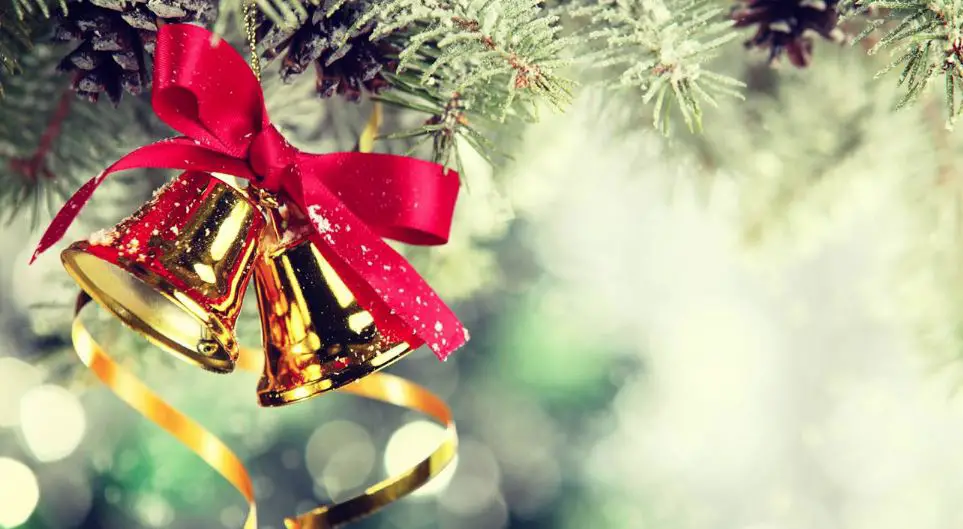Decorations, Mirth & the Renewal of the Sun
The Origins
When it comes to memorable opening lines of Christmas carols it brooks no argument that ‘Deck the Halls’ stands at the summit of anthems. Dan O’ Donnell of iHeart Radio says that ‘Deck the Halls with Boughs of Holly’ might be the most famous opening line in the history of Christmas carols. Yet it is also a festive favourite because of its catchy hooks and jolly lyrics, much like its counterparts “Santa Claus is Coming to Town,” “Jingle Bells,” or even “Joy to the World.”
Dating back to the 16th century, “Deck the Halls” wasn’t always associated with Christmas. According to many sources and liveabout.com, the melody stems from “Nos Galan”, a Welsh winter song. It originated as a winter song about New Year’s Eve.
Who Penned It?
It was in 1862 that “Deck the Halls” was first published with English lyrics. Thomas Oliphant was a Scottish songwriter and a reputed author. Oliphant was also a lyricist for the court of Queen Victoria. Thomas built a steadfast reputation of translating foreign songs into English. When he could not translate a song directly, he changed the lyrics to English to complement the feel and mood of the composition.
“Deck the Halls” is a carol that highlights the merriment and festive spirit of the Christmas celebration. The folk composition in English lauded the arrival of the holiday season. Its melodies are infectious and it is easy to remember and sing along to. Originally the lyrics spoke of comely ladies in festive cheer. Those lyrics were revised later in 1877 in the edition of the Pennsylvania School Journal. However, the version which is popular today is from the 1866 songbook also titled The Song Book.
The Lyrics of “Deck the Halls”
Lyrically “Deck the Halls” carries with it the vivid imagery of the season’s bright decorations, mirth and festive spirit.
During Christmas season we see a myriad of decorations. Be it stockings, candles, mistletoe, figurines of reindeer, angels, snowmen and Santa Clause, nativity sets, baskets, coloured lights and bells. Even a Christmas tree with its adornments is part of the tradition. ‘Deck’ is to ‘adorn’ or decorate. And the lyrics encourage us to adorn our abodes and cherished places.
The entire carol is upbeat and so the lyrics create a sense of bliss and good cheer.
“‘Tis the season to be jolly, Fa la la la la, la la la la. Don we now our gay apparel, Fa la la, la la la, la la la.” Don means to ‘put on’ and gay in those days as early as the 12th century meant ‘full of joy or mirth’.
The three verses are all cheerful. Traditionally the first verse is repeated at the end again. However, before it became a carol of Christmas it has a more ethereal and mystic origin. The lyrics pay homage to Yule or the Feast of Juul. Yule is a pre-Christian pagan celebration of 12 days revolving around the birth of the sun and the winter solstice. Yule however after the widespread adoption of Christianity in Europe has become associated with the Feast of the Nativity.
“Deck the Halls” sheds light on the celebration. The wondrous decorative aspects, colourful clothing and especially having a merry time and enjoying music. The latter is clear from the line “Strike the harp and join the chorus.”
Take the words ‘Troll the ancient Yuletide carols.” ‘Troll’ in this case means to ‘sing in a full, rolling voice’. The word derives from early hunting terminology. Troll means to look for the game in a wandering fashion. Which once again draws ties to Yule and the early celebrations of the winter solstice.
The carol also speaks of being heedless of the elements throughout the celebration. Regardless of the weather, even through the winds of winter, the merriment will ensue.
“Sing we joyous all together, oh
Heedless of the wind and weather”
“Deck the Halls” is finally a carol that beckons us to sing, dance and feast in commemorative splendour. And tell me, who among us can resist singing to ourselves, or out loud a little seasonal “Fa la la la la, la la la la la la?”
Check out the complete lyrics to the carol below.
